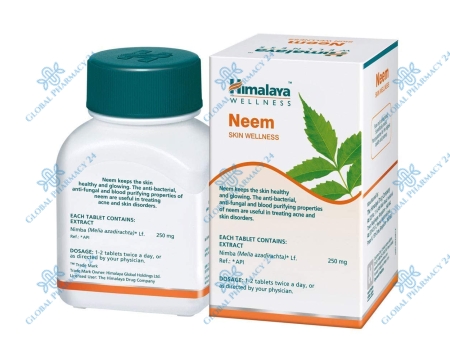| Product Form | Application | Key Benefits |
|---|---|---|
| Neem Oil | Foliar Spray, Soil Drench | Natural Pest Control, Disease Prevention |
| Neem Cakes | Soil Amendment | Soil Fertility, Plant Growth |
| Neem Pellets | Soil Application | Soil Enrichment, Sustainable Nutrition |
Understanding Neem: A Natural Gardener's Ally
Neem has emerged as a cornerstone of organic gardening, offering a natural alternative to chemical pesticides and fertilizers. Its versatility and efficacy in managing pests, diseases, and soil health make it an invaluable resource for gardeners seeking sustainable practices. Neem's active compounds, notably azadirachtin, serve as potent pest deterrents without harming the environment.
The science behind neem's effectiveness lies in its complex chemical makeup, which offers a multifaceted approach to pest control and plant health. Unlike synthetic chemicals that can lead to resistance or harm non-target species, neem works within the ecosystem, promoting balance and supporting the natural defenses of plants. This holistic approach is key to its success in organic gardening.
Neem Products for Optimal Gardening Success
Neem oil, extracted from the neem tree's seeds, is a powerful tool for managing pests and diseases on foliage and in the soil. Its application as a foliar spray or soil drench can protect plants from a wide range of threats while being safe for beneficial organisms. Neem oil's versatility makes it a staple in the organic gardener's toolkit.
Neem cakes and pellets, made from the residue of neem oil extraction, enrich the soil and promote plant growth. These products improve soil fertility and structure, offering a slow-release source of nutrients that support healthy plant development. Their use in gardening underscores neem's role in creating sustainable, nutrient-rich environments for plants to thrive.
Step-by-Step Guide to Utilizing Neem in Your Garden
Applying neem oil effectively requires understanding its properties and timing. For pest control, a foliar spray in the evening minimizes the impact on beneficial insects and maximizes absorption by plants. As a soil drench, neem oil addresses soil-borne pests and diseases, enhancing root health and overall plant vigor.
Incorporating neem cakes into your planting beds at the time of planting or as a top dressing provides a long-term nutritional boost, improving soil texture and fertility. Neem pellets, similarly, can be applied directly to the soil to slowly release nutrients and improve soil health, making them an excellent choice for organic gardeners focused on sustainability.
Neem's Environmental Impact and Ecosystem Harmony
Neem plays a pivotal role in fostering a balanced garden ecosystem. By selectively targeting pests without affecting beneficial insects, such as pollinators and predators of pests, neem contributes to the natural control of pest populations. This selective action helps maintain the ecological balance, crucial for a healthy garden.
Using neem products supports long-term garden health and sustainability. The environmental benefits of neem extend beyond pest control, contributing to soil health and reducing the need for synthetic fertilizers and pesticides. Its eco-friendly nature makes neem an essential element in promoting biodiversity and ecosystem harmony in gardening practices.
The Pros and Cons of Neem Gardening
- Pros:
- Natural pest and disease control without harming the environment
- Improves soil health and fertility
- Supports a balanced ecosystem by protecting beneficial insects
- Reduces dependency on chemical pesticides and fertilizers
- Cons:
- May require more frequent application than synthetic chemicals
- Effectiveness can be influenced by weather conditions
- Limited availability in some regions
- Requires careful handling and application to maximize benefits
Conclusion:
Embrace neem as your gardening ally and witness the magic it weaves in transforming your garden into a thriving and eco-friendly paradise. By integrating neem into your gardening practices, you not only nurture healthy plants but also contribute to a greener and sustainable world. Neem's natural solutions offer a powerful tool for gardeners to protect their plants while supporting the environment, making it an essential component of any organic gardening endeavor.
FAQs Neem
What is Neem?
Neem is a tree native to the Indian subcontinent, scientifically known as Azadirachta indica. It has been used for centuries in traditional medicine, agriculture, and pest control.
What are the benefits of Neem?
Neem offers a wide range of benefits. It is known for its antibacterial, antiviral, antifungal, and anti-inflammatory properties. It is commonly used in skincare products for its ability to treat acne, eczema, and other skin conditions. Additionally, it is used in agriculture as a natural pesticide and fertilizer.
How is Neem used in skincare?
Neem can be used in skincare in various forms such as neem oil, neem leaf extract, or neem powder. It can be applied topically to treat acne, soothe inflammation, moisturize the skin, and alleviate symptoms of eczema and psoriasis.
Is Neem safe for consumption?
When used in moderate amounts, neem is generally considered safe for consumption. However, it is important to note that excessive consumption of neem products may cause adverse effects such as nausea, vomiting, and kidney damage. It is recommended to consult with a healthcare professional before consuming neem supplements or extracts.
How can Neem be used as a natural pesticide?
Neem contains compounds such as azadirachtin, which act as insect repellents and growth inhibitors. It can be used as a natural pesticide by spraying neem oil diluted in water onto plants to deter pests and prevent fungal infections. It is an eco-friendly alternative to chemical pesticides.



















